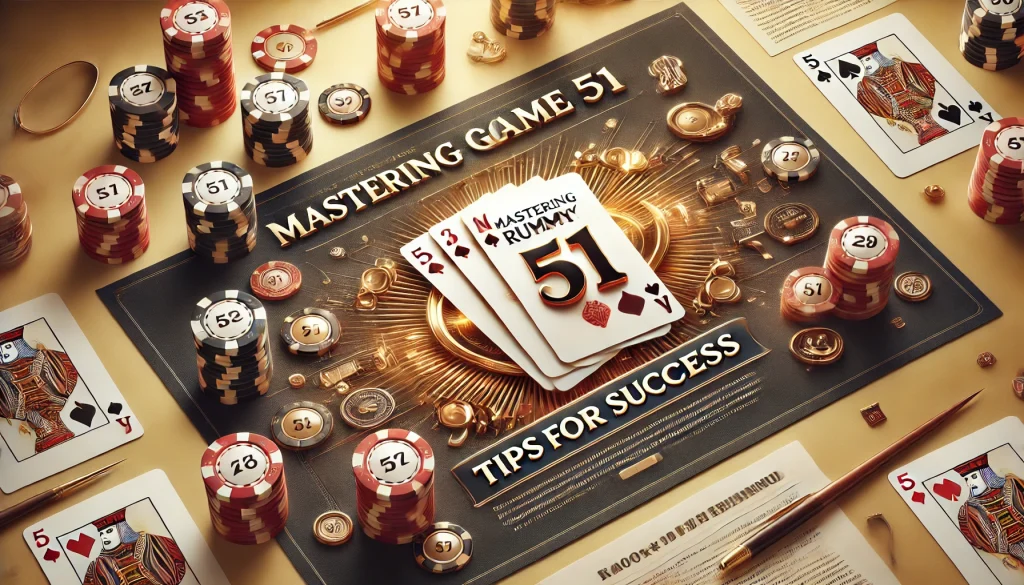Description

An Extensive Guide rummy culture to Rummy Game 51 Rummy Game 51 is a well-known card game that blends aspects of strategy, chance, and skill. Usually played with two to six players, the game makes use of a 777 slots standard 52-card deck in addition to jokers, which can act as wild cards. Creating legitimate sets and sequences—that is, card combinations that satisfy predetermined standards—is the goal. While a sequence consists of three or more consecutive cards of the same suit, a set consists of three or four cards of the same rank but different suits.
Each player is dealt a set number Classic 777 Slots APK of cards at the start of the game, typically ten, with the remaining cards making up the draw pile. The discard pile is initiated by placing the top card face-up from the draw pile. The players alternately draw a card from the discard pile or the draw pile, then discard one card from their hand.
The round is won when one player declares “Rummy” after successfully melding their cards into sets and sequences. Any player hoping to succeed in Rummy Game 51 must comprehend these basic guidelines. Players need to understand not only the fundamental rules but also the scoring system, which can change based on house regulations. The cards that players have melded usually earn them points, while the cards that are still unmelded in their hands deduct points. Aces, for example, can be worth either 1 or 11 points depending on how they are used in a meld, while numbered cards retain their face value.
Face cards are worth 10 points. Because players must balance their efforts to meld cards while also minimizing the number of points they leave unmelded in their hands, this scoring system introduces another level of strategy. Players must create a solid strategy that considers both offensive and defensive play in order to win Rummy Game 51.
A good strategy is to concentrate on creating melds as fast as you can while monitoring your opponents’ movements. Players can both improve their own game & thwart their opponents’ plans thanks to this dual focus. A player might decide to discard cards that could assist an opponent in finishing their melds, for instance, if they observe that the opponent is gathering cards of a specific suit. The management of cards is another crucial component of strategy.
Keeping cards that can form multiple melds should be a top priority for players. For example, it can be advantageous to keep a set of three cards in a single suit since it can be extended with more cards or combined with other sets. The game’s jokers and wild cards should also be taken into consideration by players since they can greatly improve their hand’s overall quality and their ability to form melds. In Rummy Game 51, wild cards and jokers are strong tools that have the ability to significantly change the outcome of a game. When it comes to finishing sets and sequences, these cards are invaluable because they can be used in place of any other card in a meld. Nonetheless, strategic planning and careful thought are necessary for the efficient use of jokers.
Jokers should be used by players to the fullest extent possible while lowering the possibility of giving opponents an advantage. For instance, using a joker to finish a sequence can be a game-changer if a player has two cards of that sequence but is missing the third card. Players should exercise caution when using jokers, though, to avoid giving away too much about their hand. When an opponent observes a joker being used in a meld, they may modify their approach to prevent additional advancement.
Thus, it’s usually a good idea to hold onto jokers until they can be applied in a way that maximizes their benefits without giving away too much of one’s strategy. Also, players should think about when to use their jokers. Keeping a joker for too long can result in lost opportunities, but playing it too soon can give opponents the opportunity to profit from the knowledge it provides. Assessing the current state of the game and basing decisions on the composition of one’s own hand as well as the obvious strategies of opponents constitute a balanced approach.
The ability to track discarded cards is a crucial skill in Rummy Game 51. Players can use this technique to determine which cards are still in play and to learn what their opponents may be gathering. Informed choices regarding which cards to draw or discard themselves can be made by players by keeping an eye on the discard pile. For example, a player may be trying to complete a meld with those cards if they observe that their opponent has routinely selected particular suits from the discard pile.
To avoid facilitating the opponent’s progress in such situations, it might be prudent to refrain from discarding cards from that suit. On the other hand, it might indicate that it is okay to release similar cards without worrying about aiding an opponent if a player discards a card that has been ignored by other players for a number of turns. Recording the cards that are discarded can also assist players in determining which cards are less likely to be selected from the draw pile. Making better decisions about which cards to keep and which to discard is made possible by this information. Players can improve their strategic play & raise their winning odds by keeping an eye on both their hand and the cards they have chosen to discard.
The core of Rummy Game 51 is melting, & any player hoping to succeed must comprehend its significance. Melding is the process of using the available cards to create legitimate sets and sequences. A player’s chances of winning the game increase with the number of melds they can produce. Thus, throughout each round, players should make melding their top priority.
In addition to improving a player’s position, meld creation lowers the quantity of unmelded points remaining in their hand at the conclusion of a round. If another player goes out first, unmelded points are deducted from that player’s score, so this reduction is essential. For instance, a player who has successfully melded the majority of their hand but keeps high-point unmelded cards, such as aces or face cards, runs the risk of facing severe penalties if they are unable to finish their melds before another player declares “Rummy.”. Also, melding can be used against adversaries as a psychological strategy.
Regularly forming melds early in the game can put pressure on other players to play more aggressively or make snap decisions that could end up costing them. Rummy Game 51’s strategic depth is further enhanced by this psychological component, which makes melding more than just creating combinations—it also involves influencing opponents’ actions. Players must make crucial choices in Rummy Game 51 about when to stop playing a round and when to keep playing.
When holding onto high-point unmelded cards or when it becomes obvious that winning is unlikely, dropping—which is giving up a round before melding all of one’s cards—can be a calculated tactic. It takes good judgment and knowledge of one’s own hand as well as the game’s dynamics to know when to drop. In the event that a player has multiple high-point unmelded cards & notices that an opponent is nearly winning, it might be wiser to leave the game early rather than risk accruing more points against them.
On the other hand, a player may decide to keep playing in the hopes of finishing their hand before another player goes out if they have formed multiple melds but still have some unmelded cards. When choosing whether to drop or continue, players should also take their opponents’ tendencies into account. Dropping sooner rather than later might be a good idea if your opponent has a reputation for aggressive play and fast wins. Holding onto one’s hand longer, however, might produce better results if opponents have a tendency to take their time or make mistakes when under pressure. In Rummy Game 51, effective hand management is essential for success.
Players have to strategically decide which cards to keep and which to discard while continuously assessing their hands. This process takes into account how each card interacts with the other cards in the hand in addition to evaluating possible melds. Sorting cards according to how likely they are to form melds is a useful hand management technique.
For instance, while keeping track of single high-point cards that might turn into liabilities if they are not merged quickly, players may group cards that are a part of possible sequences or sets. Players who arrange their hand this way are less likely to hold onto unmelded high-point cards for extended periods of time and are able to make decisions more quickly while playing. Also, players’ approaches to hand management should continue to be adaptable. The chances of melding can change quickly as new cards are drawn or discarded during the game. If a card is drawn at the ideal moment or an opponent discards something helpful, a card that initially appeared worthless could suddenly gain value. Players who remain flexible can take advantage of these chances as they present themselves while keeping their attention on their overall plan.
It is impossible to overestimate the importance of mental toughness in Rummy Game 51; maintaining patience and concentration throughout gameplay is crucial to winning. Long periods of time during the game when nothing seems to happen or when opponents make unforeseen moves that throw off one’s plans are common. It becomes vital to remain composed in these situations. Because Rummy is about long-term strategy and decision-making rather than just short-term outcomes, players should learn to be patient.
When plans don’t work out, it’s easy to get frustrated, but sometimes stepping back and reevaluating one’s stance can produce better results. When an opponent discards a card that initially appears to be unimportant but could potentially complete a future meld for oneself, for example, patience enables deliberate deliberation as opposed to rash responses. Maintaining focus also entails actively participating in every facet of the game, such as keeping tabs on opponents’ moves, recording the cards that are discarded, and constantly assessing one’s own hand for possible enhancements.
A more pleasurable gaming experience for all players is facilitated by this degree of engagement, which also improves individual performance. To sum up, mastering Rummy Game 51 necessitates comprehending its basic rules & creating strategies that work for each player’s style and the tendencies of their opponents. Players can greatly increase their chances of winning this captivating card game by efficiently managing their hands, using jokers, keeping track of discarded cards, and staying focused throughout gameplay.lottery sambad old

